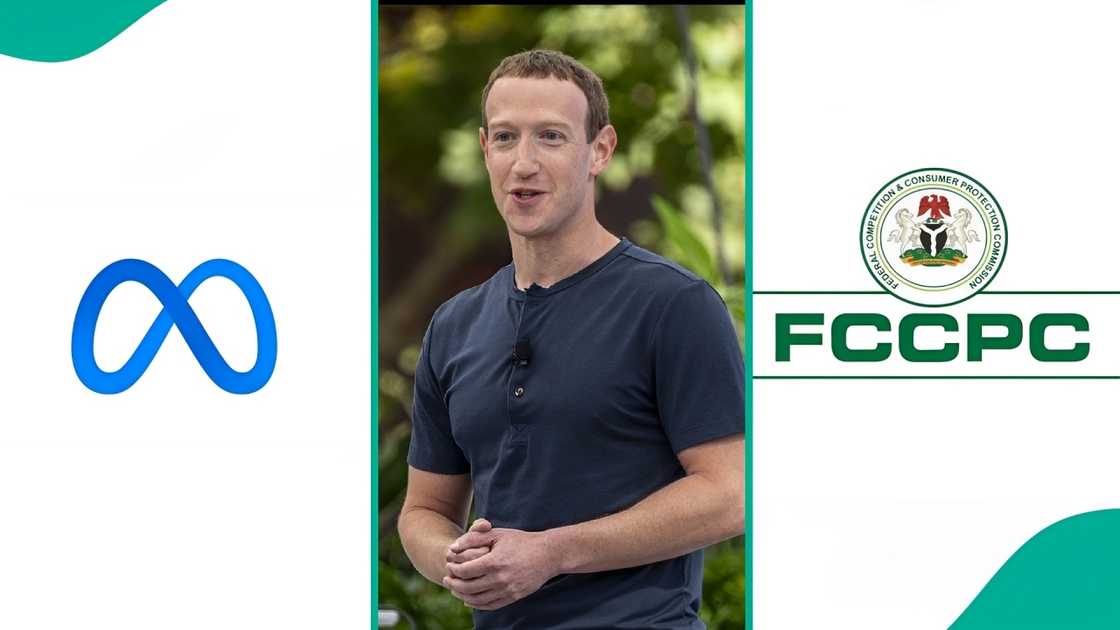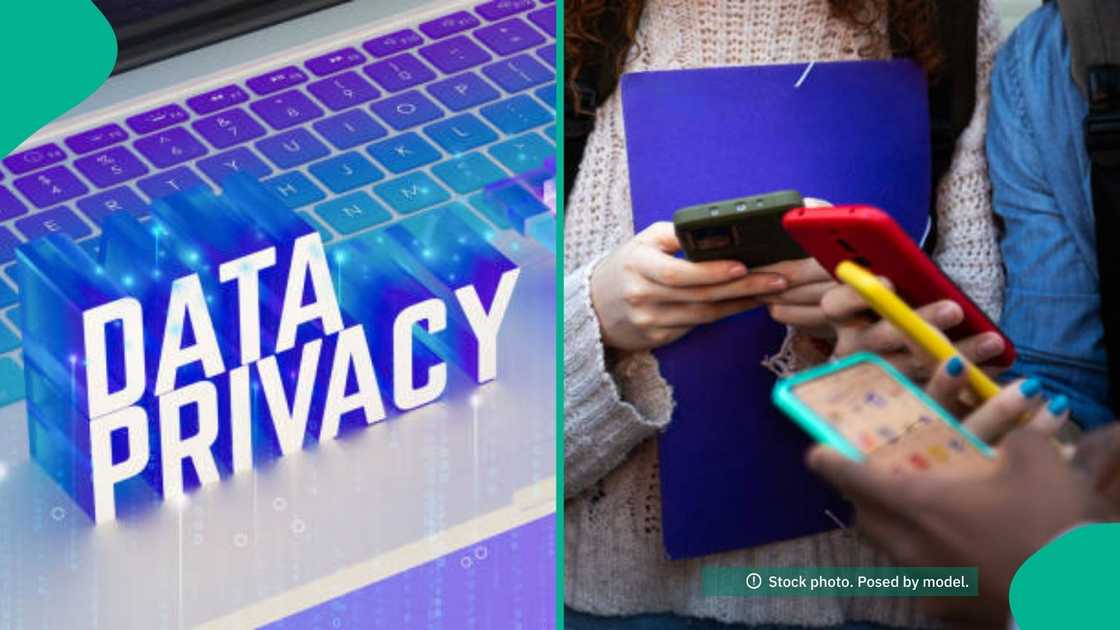Meta’s $220 Million Fine: What It Means for Nigerians and the Future of Digital Sovereignty
Editor's note: In this piece, digital rights advocate Wale Bakare examines Nigeria’s $220 million fine on Meta, raising questions about user consent, platform power, and how Nigeria might reshape its digital environment beyond foreign tech dependence.
In July 2024, the Federal Competition and Consumer Protection Commission (FCCPC) of Nigeria announced a monumental N352 billion ($220 million) fine against Meta Platforms, the parent company of Facebook, Instagram, and WhatsApp. The penalty stems from alleged data privacy violations and discriminatory treatment of Nigerian users, specifically, Meta's failure to offer transparent, opt-out mechanisms for data collection and a lack of clarity on how Nigerians' data is used compared to other jurisdictions. Meta’s response? A warning that it may withdraw Facebook and Instagram from the Nigerian market.

Source: Twitter
While some may view Meta’s reaction as a corporate bluff, the implications of this fine and any potential withdrawal demand deeper examination. This is not just a legal or economic issue; it is a national conversation about digital sovereignty, user rights, and the responsibilities of global tech giants operating within Nigeria's borders.
The fine is one of the largest ever imposed by a Nigerian regulator on a foreign technology company, signalling a new era of enforcement. For too long, Nigerian users have been subject to opaque algorithms, unfair content moderation practices, and unconsented data harvesting by big tech firms, with little recourse. The FCCPC’s decision sends a clear message: Nigerian citizens deserve the same level of privacy protection, respect, and transparency that users in the European Union or the United States enjoy.
The Nigerian government’s stance aligns with global trends. In recent years, regulators across the world, from Ireland to India, have been pushing back against Meta’s data practices. However, unlike the EU's General Data Protection Regulation (GDPR), Nigeria's digital rights and data protection framework is still evolving, and enforcement has often lagged behind legislation. This fine, therefore, represents both a challenge and an opportunity to redefine the rules of engagement in our digital economy.
Meta’s counter-response that it may withdraw Facebook and Instagram from Nigeria raises a critical question: Is this a genuine threat or a strategic negotiation tactic? With over 51 million Nigerians actively using WhatsApp, and millions more on Facebook and Instagram, it is difficult to imagine Meta abandoning such a sizable market.
But this is not the first time Meta has made such threats. In 2021, it briefly blocked Australian news content over a proposed media bargaining code. It also threatened to suspend operations in Europe over data transfer disputes. These incidents follow a familiar script: regulators assert control, Meta resists with aggressive messaging, and the world watches to see who blinks first.

Read also
CBN, Everfox, InfoData, others alert Nigerians of evolving cyber threats, emphasise vigilance
In Nigeria’s case, the potential fallout is complex. A Meta pullout could destabilise digital businesses that rely on these platforms for customer outreach, marketing, and sales. Thousands of small and medium enterprises (SMEs), influencers, and content creators could be affected overnight. But it could also catalyse local innovation and force a long-overdue reckoning about our overdependence on foreign tech infrastructure.
At the heart of this dispute is a larger conversation about digital colonialism, the idea that tech giants exploit the data and digital labor of users in the Global South without providing equitable returns, protections, or governance. For many Nigerians, Facebook and Instagram are not just social networks—they are critical economic tools. Meta's data monetization practices turn user behavior into profit, yet users are often left in the dark about how their data is used, sold, or weaponized. By fining Meta, the FCCPC is asserting that Nigeria is no longer content to be treated as a digital periphery. If European users enjoy certain rights—such as data portability, consent mechanisms, and algorithmic transparency why should Nigerian users settle for less? The fine symbolises a demand for parity and dignity in the global digital economy.

Source: Getty Images
The short-term risks are real. If Meta follows through on its threat, there could be economic and social disruptions. Businesses that depend on Facebook Ads for visibility may lose access to their customer base. Civil society organizations and advocacy groups that use Instagram to reach youth audiences may be forced to migrate to other platforms. For the average user, it may mean losing a community, a marketplace, or even a livelihood. However, this situation could also ignite a broader movement toward digital resilience. Already, Nigerian developers are building homegrown alternatives, and regional platforms like Ayoba, Nairaland, Creatlie, and others are showing promise. With the right investment and regulatory support, Nigeria can turn this crisis into a springboard for digital independence.
The Meta fine must not be the end of the conversation; it should be the beginning. What Nigeria needs is a comprehensive Digital Bill of Rights that guarantees data protection, platform accountability, freedom from algorithmic discrimination, and recourse mechanisms for users. Enforcement agencies like the FCCPC and the Nigeria Data Protection Commission (NDPC) must be empowered, well-funded, and free from political interference. We must also build civic awareness. Too many Nigerians still do not know what happens to their data online or what rights they possess under existing laws. Public campaigns, digital literacy programs, and multi-stakeholder dialogues will be essential in closing this gap.
Nigeria is not alone in this battle. Across Africa, governments are grappling with the power imbalance between sovereign states and multinational tech companies. Kenya’s proposed data protection regulations, South Africa’s Protection of Personal Information Act (POPIA), and Ghana’s recent investigations into social media abuse all reflect a regional awakening. Nigeria can lead this charge not just by fining corporations, but by proposing models of digital governance that balance innovation with rights.
Meta’s $220 million fine is not just about punishing a tech giant; it is about reclaiming agency in a digital world where Nigerian voices have often been marginalized. The choice before us is not whether to keep or lose Facebook and Instagram, it is whether we will shape the digital future on our own terms or continue being passive consumers of technologies built elsewhere, for someone else’s benefit.
Now is the time for bold leadership. Nigeria must stand firm, invest in local alternatives, and demand that tech giants respect our laws, our people, and our data. Because Nigeria is not a digital dumping ground. It is a sovereign nation with rights, dignity, and a future worth protecting.
Wale Bakare is a Digital Rights and Digital Inclusion Advocate, Co-founder/Director of Partnership and Sustainability, Webfala Digital Skills for all Initiative.
Disclaimer: The views and opinions expressed here are those of the author and do not necessarily reflect the official policy or position of Legit.ng.
Source: Legit.ng





